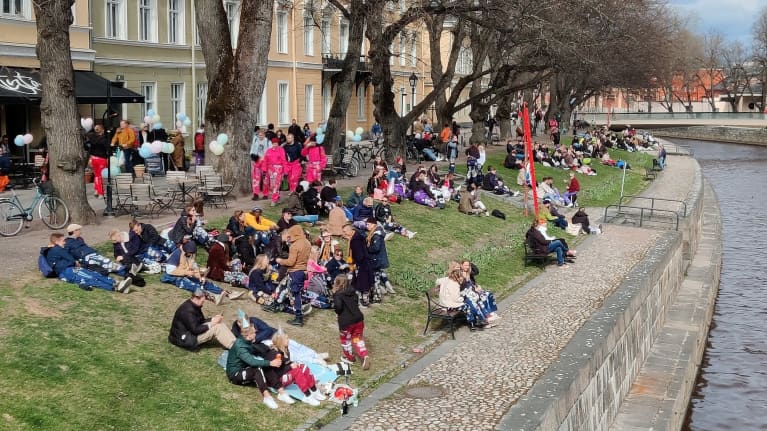Newspaper Helsingin Sanomat spoke with professor of social policy Minna van Gerven about which groups will suffer the biggest setbacks as a result of the government's new cuts and tax increases announced on Tuesday.
The budgetary measures will add roughly 2.8 billion euros to the government's budget, on top of six billion euros of savings already in place.
"Half tax increases and half cuts. I think it could have been worse, that there would have been more cuts. Overall, it's more of a balance," van Gerven told HS in response to the new cuts.
The professor noted that three groups will suffer the most as a result of the new measures — students, households reliant on public healthcare as well as disabled workers.
Since 2017, students have been able to qualify for general housing allowances, but the new budget measures will return students to the student housing allowance. According to van Gerven, this will particularly impact students living alone.
The government has proposed a new student housing allowance of up to 260 euros per month. This could reduce the housing allowance for a student living alone by more than 100 euros per month.
Healthcare service fees will also be increased, and the initial deductible for medications will rise from 50 euros to 70 euros.
Lastly, van Gerven raised the issue of the closure of the state-run firm Työkanava, which tries to find employment for the unemployed and partially disabled.
The government justified the closure of Työkanava on the grounds that its "employment activities have not met the objectives set for a special purpose company". The company started its activities in 2022.
"State-sponsored employment has been really important for the hard-to-employ. The big question is what to do with them now, what work opportunities can be created for them," said van Gerven.
US warns Finland about Russia
Tabloid Iltalehti covered the US Department of Defense (DoD) alerting Finland and the Baltic States that Russia will try to test the solidity of Nato's Article 5 in the region.
Nato's collective defence clause, Article 5, states that an attack on one member is an attack on all.
Deputy Assistant Secretary of Defense Lisa C. Sawyer told IL that there is a threat, but it is not yet imminent.
"This is why emphasise readiness of forces, effective command structure, deterrent posture, pre-positioning of weapons, and having plans on the stress" Sawyer said.
Sawyer added that the Pentagon believes that Russia has already begun launching a hybrid war against Finland.
"But I would also point out there is a lot that can happen below the threshold of Article 5. Some of which Russia is already doing, in particular disinformation campaigns, cyberattacks, and other sort of, sub, what we call grey zone activities, or hybrid activities, that really point to the importance of resilience activities to really strengthen societies as a whole. I think this is something that Finland does particularly well in your concept of total defence in making your societies as impenetrable as possible," Sawyer emphasised.
Sawyer noted that Nato needs to better equip its defence forces to deter and prepare against any possible threats from Russia. She also firmly supported the US' commitment to Finland's defence.
"We defend every inch of Nato territory. I think Mr. [Vladimir] Putin understands this," Sawyer told IL.
Bug eat bug
Rural-focused newspaper Maaseudun Tulevaisuus highlighted a subtle revolution in the agricultural sector that has occurred in the past few decades, in which pesticides have been replaced by biological control in many European greenhouses.
The newspaper praised Finland as one of the pioneers of this movement, which uses natural predators to fight against pests. This method has been used in Finland since the 1970s and is today mainstream for greenhouse producers.
About 15 years ago, greenhouses in Spain began adopting a similar method, using local predator species to reduce pests.
Even though the practice has caught on in some areas of Europe, pesticide levels around areas with greenhouses were still high according to a study last year conducted by the Pesticide Action Network (PAN).
In some parts of Spain, water samples were recorded at levels up to ten times higher than the recommended EU levels.
Finland's regulations also make pesticides more restricted than the rest of Europe, and are only used as a last resort, said greenhouse expert Lassi Remes from the Finnish Glasshouse Growers' Association.
Users with an Yle ID can leave comments on our news stories. You can create your Yle ID via this link. Our guidelines on commenting and moderation are explained here.
